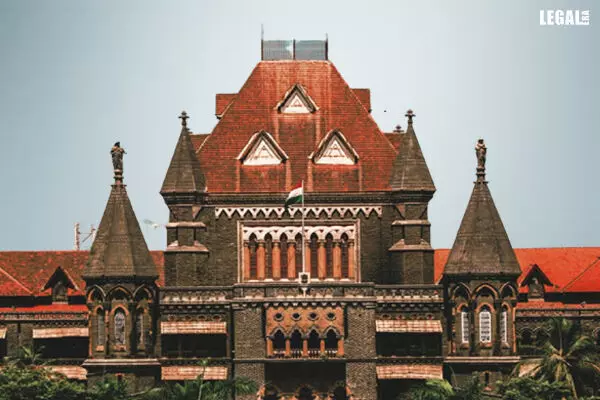- Home
- News
- Articles+
- Aerospace
- Artificial Intelligence
- Agriculture
- Alternate Dispute Resolution
- Arbitration & Mediation
- Banking and Finance
- Bankruptcy
- Book Review
- Bribery & Corruption
- Commercial Litigation
- Competition Law
- Conference Reports
- Consumer Products
- Contract
- Corporate Governance
- Corporate Law
- Covid-19
- Cryptocurrency
- Cybersecurity
- Data Protection
- Defence
- Digital Economy
- E-commerce
- Employment Law
- Energy and Natural Resources
- Entertainment and Sports Law
- Environmental Law
- Environmental, Social, and Governance
- Foreign Direct Investment
- Food and Beverage
- Gaming
- Health Care
- IBC Diaries
- In Focus
- Inclusion & Diversity
- Insurance Law
- Intellectual Property
- International Law
- IP & Tech Era
- Know the Law
- Labour Laws
- Law & Policy and Regulation
- Litigation
- Litigation Funding
- Manufacturing
- Mergers & Acquisitions
- NFTs
- Privacy
- Private Equity
- Project Finance
- Real Estate
- Risk and Compliance
- Student Corner
- Take On Board
- Tax
- Technology Media and Telecom
- Tributes
- Viewpoint
- Zoom In
- Law Firms
- In-House
- Rankings
- E-Magazine
- Legal Era TV
- Events
- Middle East
- Africa
- News
- Articles
- Aerospace
- Artificial Intelligence
- Agriculture
- Alternate Dispute Resolution
- Arbitration & Mediation
- Banking and Finance
- Bankruptcy
- Book Review
- Bribery & Corruption
- Commercial Litigation
- Competition Law
- Conference Reports
- Consumer Products
- Contract
- Corporate Governance
- Corporate Law
- Covid-19
- Cryptocurrency
- Cybersecurity
- Data Protection
- Defence
- Digital Economy
- E-commerce
- Employment Law
- Energy and Natural Resources
- Entertainment and Sports Law
- Environmental Law
- Environmental, Social, and Governance
- Foreign Direct Investment
- Food and Beverage
- Gaming
- Health Care
- IBC Diaries
- In Focus
- Inclusion & Diversity
- Insurance Law
- Intellectual Property
- International Law
- IP & Tech Era
- Know the Law
- Labour Laws
- Law & Policy and Regulation
- Litigation
- Litigation Funding
- Manufacturing
- Mergers & Acquisitions
- NFTs
- Privacy
- Private Equity
- Project Finance
- Real Estate
- Risk and Compliance
- Student Corner
- Take On Board
- Tax
- Technology Media and Telecom
- Tributes
- Viewpoint
- Zoom In
- Law Firms
- In-House
- Rankings
- E-Magazine
- Legal Era TV
- Events
- Middle East
- Africa
Bombay High Court: Fees Paid to Clubs for Corporate Membership Meant Solely for Business is Revenue In Nature

Bombay High Court: Fees Paid to Clubs for Corporate Membership Meant Solely for Business is Revenue In Nature
States that it was a pure business expense, hence, deductions were allowable under Section 37 of the Income Tax Act.
The Bombay High Court has held that the admission fees paid to a club towards corporate membership are wholly and exclusively for business purposes, and the same are revenue-generating.
The bench of Justice K.R. Shriram and Justice Rajesh S. Patil also noted that the expenditure incurred towards entrance fees and annual membership meant ‘revenue expenditure’, as it was incurred exclusively for business and not the capital account. Such expenditures facilitated running the enterprise efficiently and did not add to the profit-making apparatus of the business.
The bench was dealing with a writ petition filed by the petitioner/assessee Swiss Re Services India Pvt. Ltd, which received a reassessment notice stating reasons that the petitioner’s income chargeable to tax had escaped assessment. The petitioner was directed to file an Income Tax Return (ITR) stating the entrance and subscription fees to Willington Sports Club (WSC).
The assessee contended that the expenditure incurred wholly and exclusively for the company’s business was revenue in nature and was rightly claimed as a deduction.
However, the department viewed that such expenditure could not be termed revenue because it had an enduring effect, and the assessee would get the benefits of membership for years to come. It argued that the same had been incurred to bring into existence an advantage of enduring benefit to the business. Therefore, it should be attributable to capital expenditure.
The judges observed there was no basis on which the assessing officer believed that an amount of Rs.1,98,326 was paid towards entrance and subscription fees to WSC. Schedule 9 of the profit and loss account enumerated membership and subscription without mentioning the name of the club.
The Court, while rejecting the petition, added that the club membership fee of the employees was a pure business expense, hence, deductions were allowable under Section 37 of the Income Tax Act.



